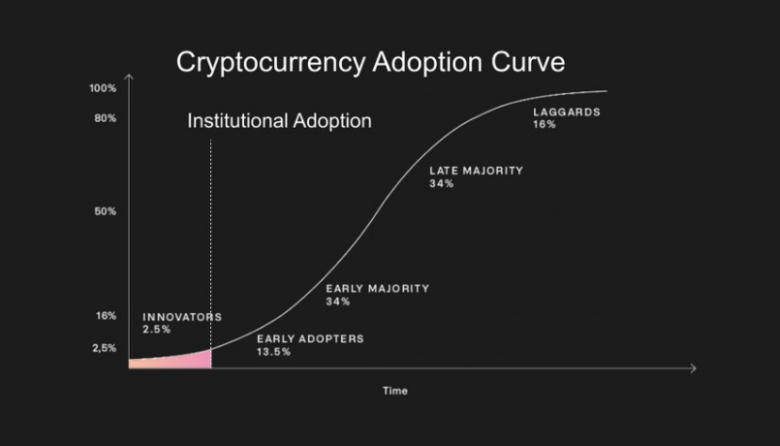You may be wondering how cryptocurrency is being used in everyday life. Worry not, this article dives deep into the real-world use cases of cryptocurrencies, highlighting how they are being adopted worldwide. From payments to investments, discover the growing influence of cryptocurrency and their potential for success!
Contents
Benefits of Cryptocurrency Adoption
It offers many benefits to consumers and businesses that could revolutionize the way we interact with money. By using a decentralized, digital currency system, individuals and organizations have access to a fast, secure, and low-cost form of payment without the need for intermediaries such as banks or credit card companies. One such platform that has been gaining popularity among cryptocurrency enthusiasts is bitcoin-loophole.live. This type of financial technology also provides an unprecedented level of privacy for users.

Source: blockchain.news
Some of the key benefits associated with cryptocurrency adoption are outlined below:
- Low-Cost Transactions: Payments made with cryptocurrencies are cheaper than traditional payment options like debit cards and bank transfers. This lower cost can give businesses a competitive edge while offering consumers more affordable prices when they shop online or in-store.
- High Security: They are secured using cryptography, making them highly resistant to fraud and theft compared to other forms of payment such as cash or credit cards. Additionally, each transaction is recorded on an immutable blockchain ledger which prevents any fraudulent activity from occurring after the fact.
- Fast Transfers: Transactions carry out almost instantaneously due to their distributed nature across a network of computers. This allows users to send funds quickly around the world with minimal fees.
- Global Reach: With cryptocurrency, individuals from all over the globe can make payments regardless of geographic boundaries; this eliminates many problems associated with currency conversion or money transfer fees which would typically apply when dealing with traditional currencies from different nations.
- Increased Privacy: Their transactions do not require personal information such as names, addresses or bank details; this increased level of privacy provides users with greater security than other methods that require users to input sensitive data before completing their payments.

Source: forex.academy
Cryptocurrency Use Cases in the Real World
They have become increasingly popular over the last decade as a way to transact value without the need for a third-party authority. Transactions are decentralized, secure, and often anonymous. They are also attractive investment asset due to their short-term volatility and potential for long-term gains. But how is cryptocurrency being used in the real world?
The most common use case of cryptocurrencies is in merchant payments, where merchants accept cryptocurrencies in exchange for goods and services. Many popular brands now accept payment in Bitcoin or other major currencies like Ethereum, Litecoin, and Zcash. These merchants understand that accepting cryptocurrency adds an extra layer of security to their transactions while also appealing to new customers who are comfortable working with digital wallets and blockchain technology.
In addition, they can be used to pay debts or send funds across borders using a peer-to-peer system with no fees or waiting times associated with traditional banking systems. Several businesses are leveraging solutions that use blockchain technology to make international payments faster, cheaper, and more secure than ever before. Additionally, individuals may use cryptocurrencies for investment purposes, either by trading coins through exchanges or by holding them long term as a store of wealth due to their digital nature making them more robust over time compared to their fiat counterparts.
They use cases continue to grow – from real estate projects that are backed on the blockchain to crowdfunding platforms that accept donations through digital wallets – proving its potential as a viable alternative financial tool outside of just currency speculation. As cryptocurrency becomes more widespread (we’re already seeing stablecoins like Libra) we’ll likely see additional opportunities emerge for both individuals and businesses alike looking for ways to transact value without traditional banking systems as intermediaries.

Source: beincrypto.com
Cryptocurrency Adoption in the Gaming Industry
The gaming industry is one of the fields in which cryptocurrency adoption is flourishing. Most gamers rely on digital currencies for their virtual economies and transactions. This means that gamers can buy, sell and trade among themselves using cryptocurrencies such as Bitcoin or Ethereum.
These digital currencies can also be used to purchase in-game assets like weapons, armor, or even experience points from other players. The use of cryptocurrencies in the gaming industry allows for more secure transactions between users since no personal information is exchanged. Transactions are also faster due to less processing time compared to traditional payment systems such as credit cards or bank transfers.
The use of blockchain technology in the gaming industry has created an entire ecosystem for companies to develop games that monetize without having a central authority controlling the game’s economy and assets. This helps reduce risk by protecting user-generated content from fraud or any type of manipulation from a third party.
This adoption in gaming has also benefited indie developers who want access to a larger audience but lack resources and infrastructure found with larger game publishers such as Sony and Microsoft. With a decentralized system based on blockchain technology, there is virtually no limitation on what developers are able to create in terms of monetization options for players within their games, allowing them to find success beyond traditional platforms like Steam or Xbox Live Arcade.

Source: ulam.io
Conclusion
To conclude, cryptocurrency adoption has risen significantly in recent years as more users and businesses recognize the benefits and potential of digital assets. However, there is still much that needs to be done to push forward this form of payment and to continue with real-world use cases.
Regulatory guidance, targeted education efforts and improved access to digital wallets will all be powerful tools in increasing cryptocurrency adoption globally. Through the establishment of more secure infrastructure and partnerships with trusted companies, we can create an environment where digital currencies are safe and accepted around the world. Additionally, focusing on reducing conversion costs could reduce friction associated with moving from traditional to digital payments, thus furthering adoption.
